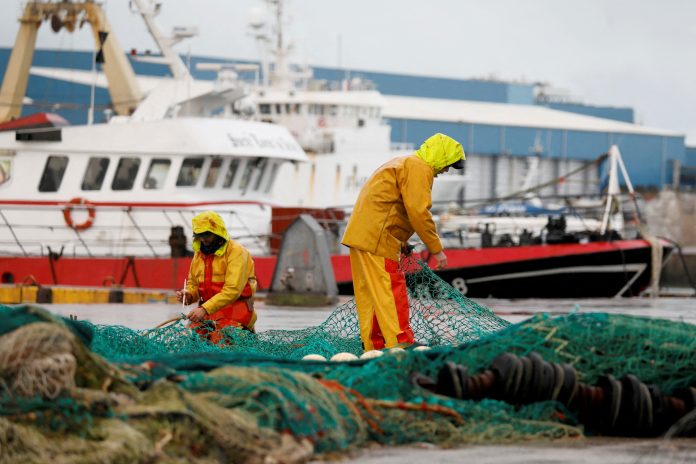Representatives from nine EU countries will meet in Brussels earlier this week to discuss the implications of the UK’s decision to ban bottom fishing in 13 marine reserves – a measure London says applies equally to its own fishermen and EU fishermen, Euractiv reports.
The UK imposed a ban on bottom fishing in 13 marine reserves on 22 March. Influenced by the national industrial fishing sector, France has formed a coalition of EU member states to force the European Commission to impose sanctions on the UK for non-compliance with the Trade and Co-operation Agreement (TCA) signed in 2020 by London and Brussels.
Bottom fishing involves dragging heavy nets across the ocean floor, a method that non-governmental environmental organisations consider destructive.
In 2023, in its “EU Action Plan to protect and restore marine ecosystems for sustainable and resilient fisheries,” the Commission asked Member States to ban the practice in marine protected areas by 30 March 2024.
According to a recent report by several European NGOs, 90 per cent of European marine protected areas are subject to this practice. So far, only Greece banned bottom fishing in its marine reserves on 16 April.
Immediately after the British decision, French Minister for European Affairs Jean-Noël Barrot visited the port of Boulogne-sur-Mer in northern France to reassure local fishermen who will no longer be able to access these fishing grounds. He condemned a “potentially discriminatory” approach that could lead to “retaliatory” measures.
The UK agreement allows for such measures (Article 494), but they must be “proportionate and non-discriminatory.”
For the NGO Bloom, non-discrimination is evident as the bans apply to both the European and British fleets.
The Marine Management Organisation (MMO), the British government body behind the new rules, said the ban “will only impose management measures that are non-discriminatory and apply equally to vessels wherever they fish.”
According to Louis Gustin, director of the Regional Committee for Fisheries in Haute-France (a region where almost 50 per cent of the fleet is affected), discrimination is not just about the number of vessels.
The ban applies “in certain protected areas, such as the strait between the Channel and the North Sea (Goodwin Sands and Foreland areas), which are reserved for the French and Europeans because the British fleet uses other methods,” he told Euractiv.
In its report, the British authorities recognised that “due to varying levels of activity in the Goodwin Sands MPA, some countries may be more affected than others.”
According to a recent study by the Oceana association, only 6% of the 33,000 hours of bottom trawling undertaken in UK marine reserves is by UK vessels. This mainly affects three countries: France, the Netherlands and Belgium.
